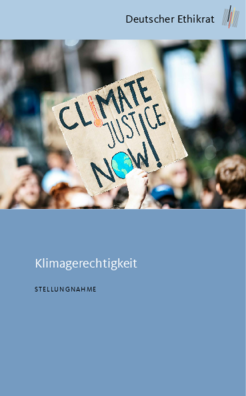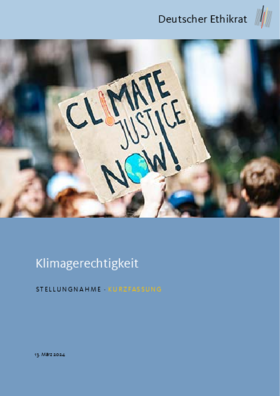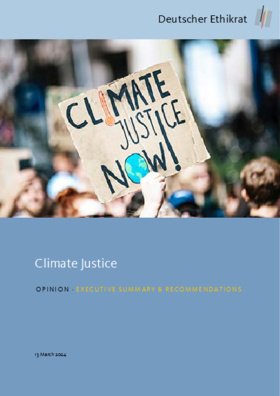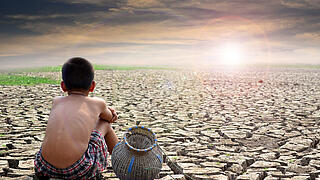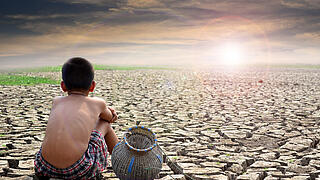Published: 13 March 2024
Tackling climate change raises important questions of justice and responsibility. The analysis centres on three dimensions of climate justice: within society, internationally and intergenerationally. Burdens and responsibilities must be distributed fairly in these dimensions. In its Opinion, the German Ethics Council develops a concept of climate justice: Burdens and duties in the fight against climate change should be distributed in such a way that the minimum requirements for a good, successful life can be achieved for all human beings now and in the future. On this basis, the Ethics Council addresses key issues regarding responsibility in climate change and formulates recommendations.
An English translation of the executive summary of the Opinion is available for download. The full report will be translated in due course.

